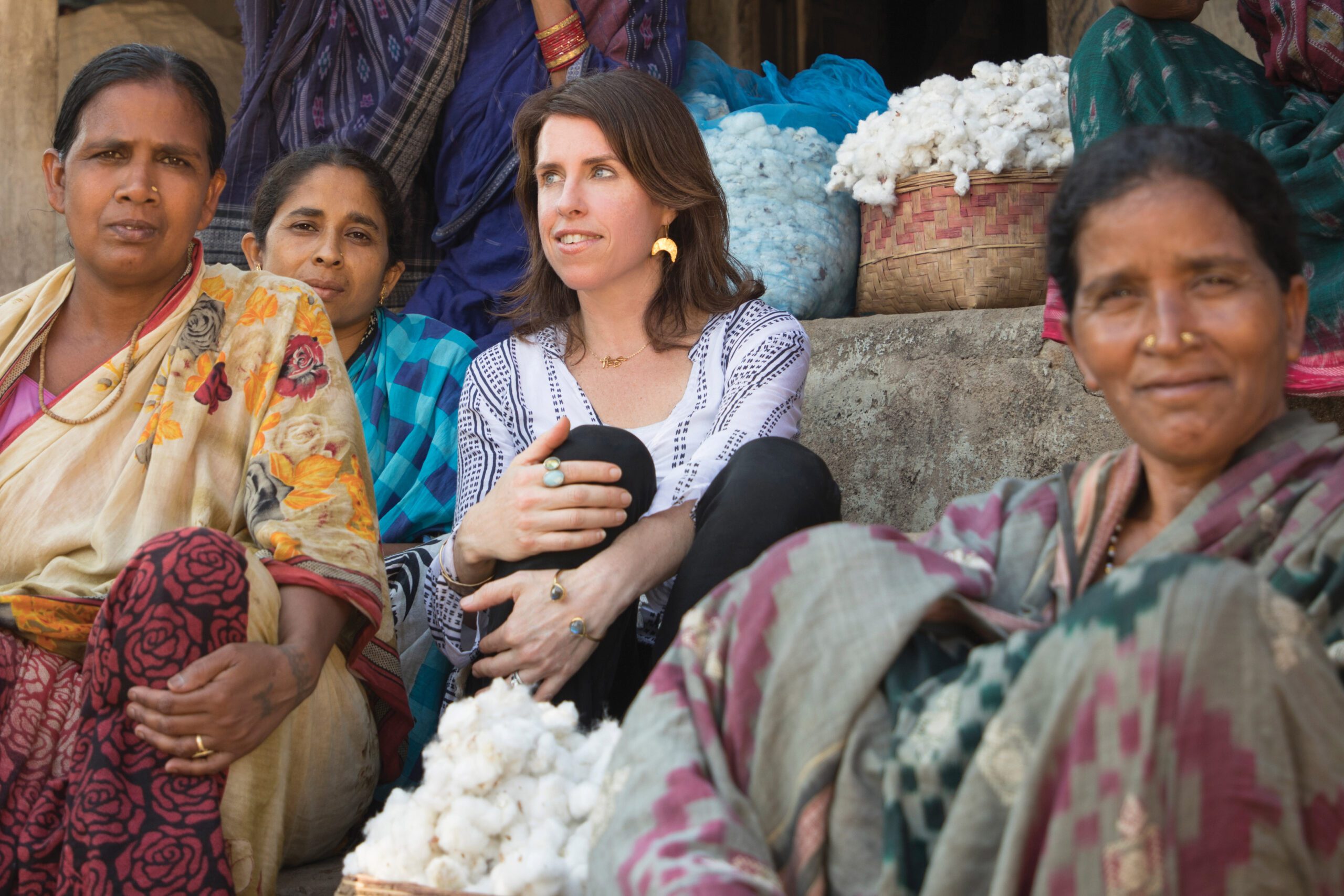
Anyone who has been to a Wanderlust Festival knows that there’s a palpable sense of community that emerges after four days of mindful adventuring. When you multiply that by the number of events we’d do in a year, and the number of seasons we’d put up the tents… then these connections start to run deep. These familiar faces become family. From teachers to guests, from vendors to our mountain hosts, each year our shared experiences in seeking made us closer.
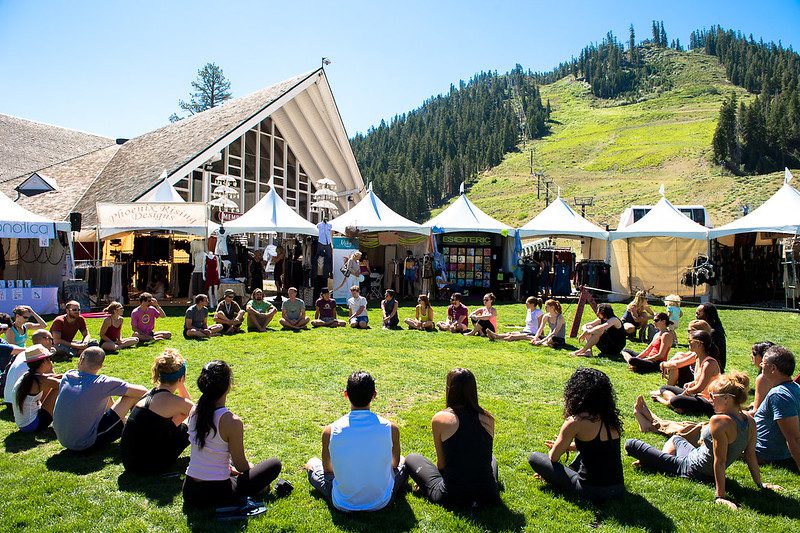 So, when one of your family members grows legs and is suddenly visible beyond our festival fringes, it’s exciting for all of us in the Wanderfam. (See: a bunch of yogis tuning in to The Voice for the first time when our magical musical minstrel, Thunderstorm Artis, was about to take top prize, singing Blackbird and making all of America teary). That’s the same feeling I had when I first saw Synergy in Whole Foods. The threads that I’d worn each summer, hosting the Speakeasy at every summer festival, had now found racks beyond our beloved dusty artisan vending, the Kula Market, and were now in the premiere market for conscious consumers in the USA. I was so proud of Kate and Henry.
So, when one of your family members grows legs and is suddenly visible beyond our festival fringes, it’s exciting for all of us in the Wanderfam. (See: a bunch of yogis tuning in to The Voice for the first time when our magical musical minstrel, Thunderstorm Artis, was about to take top prize, singing Blackbird and making all of America teary). That’s the same feeling I had when I first saw Synergy in Whole Foods. The threads that I’d worn each summer, hosting the Speakeasy at every summer festival, had now found racks beyond our beloved dusty artisan vending, the Kula Market, and were now in the premiere market for conscious consumers in the USA. I was so proud of Kate and Henry.
Who are Kate and Henry? They’re the souls behind Synergy Organic Clothing, which has now grown up and become WVN: a certified B Corp that uses Fair Trade factories to create truly beautiful (and sustainable) clothing. Kate began her first apparel business in 1993 when she began selling clothes from her travels in India and Nepal at Grateful Dead concerts. After pivoting to all organic fabrics, she founded Synergy with her husband and business partner, Henry Schwab. WVN is the culmination of nearly three decades of experience building a large-scale women’s clothing brand while staying true to the original goal of doing great fashion the right way.
We sat down with Fisher to learn a little more about this evolution, and to talk about how community has played a part in WVN’s growth. Sustainable style has inherent challenges, and Fisher has navigated them during the added pressures of a global pandemic. Learn more about how this female founder is making it work.
Wanderlust: The roots of your sustainable clothing journey run deep, and in fact, run through the tapestry of Wanderlust events of yore. Hippie festivals, gatherings about peace and love… to many, those might seem like throwback memories. But in fact, these types of gatherings have been part of many modern brands’ growth. Can you tell us a bit about how events that built community around sustainable values played a part in the early years of your brand?
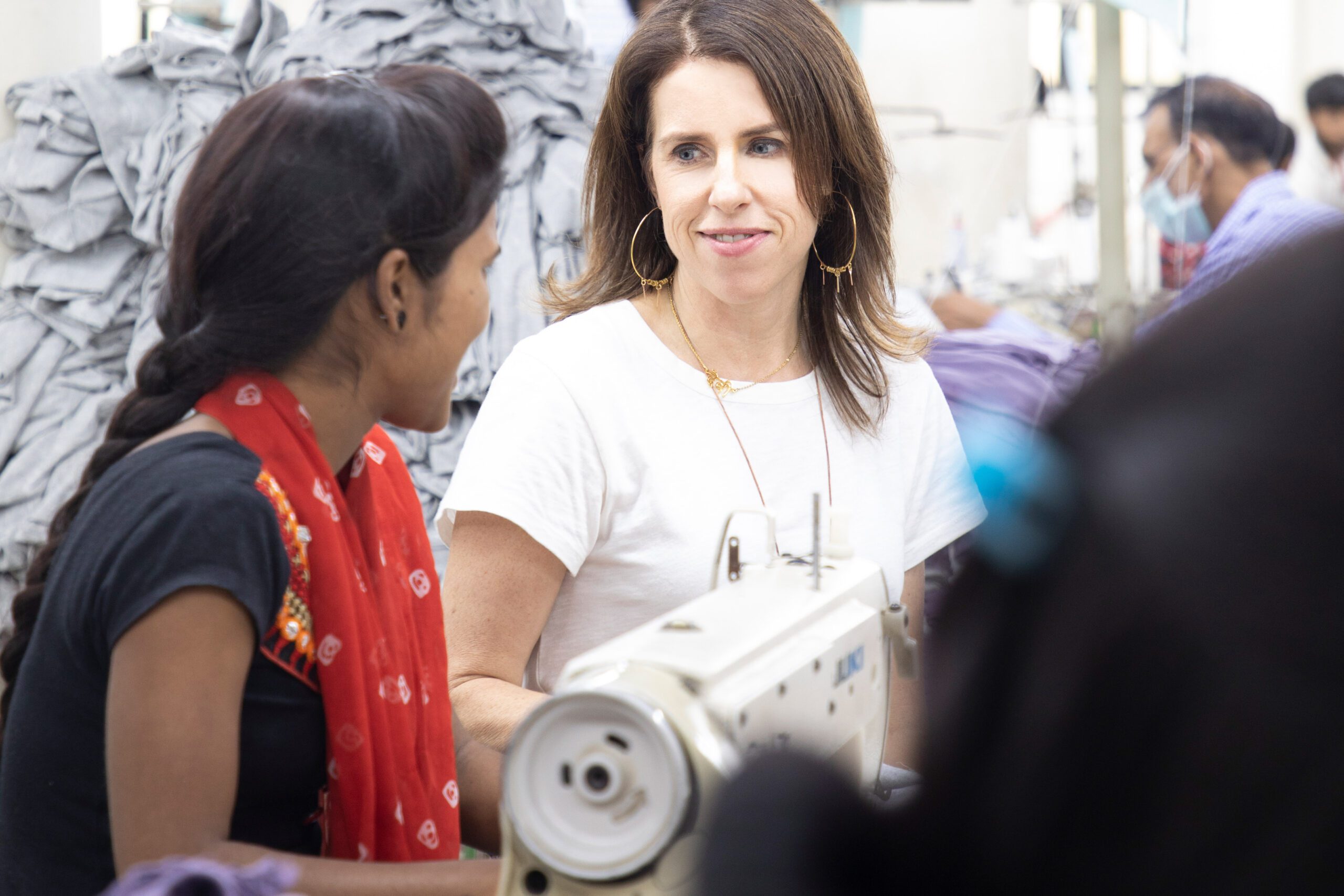 Kate Fisher: Yes, indeed! My original roots in the clothing business actually emerged from selling my wares in the Grateful Dead parking lot! It was an amazing free marketplace to sell in, like a huge traveling music gypsy festival. Soon after that, I started selling at festivals. It was a great way to get our brand out there, build our customer base, and to connect with people who shared our sustainable values. It was also a lot of fun to have festivals as the back drop of our work: we met a lot of great people from all over the country and it helped us to build a great community. Selling at festivals was a great experience for us and it was lovely to see so many small emerging creative businesses being supported by the communities that sprang up at festivals. I still meet people all the time who let me know that they found us at festivals and then became lifelong customers.
Kate Fisher: Yes, indeed! My original roots in the clothing business actually emerged from selling my wares in the Grateful Dead parking lot! It was an amazing free marketplace to sell in, like a huge traveling music gypsy festival. Soon after that, I started selling at festivals. It was a great way to get our brand out there, build our customer base, and to connect with people who shared our sustainable values. It was also a lot of fun to have festivals as the back drop of our work: we met a lot of great people from all over the country and it helped us to build a great community. Selling at festivals was a great experience for us and it was lovely to see so many small emerging creative businesses being supported by the communities that sprang up at festivals. I still meet people all the time who let me know that they found us at festivals and then became lifelong customers.
WL: Helming a clothing line is a large undertaking, but building a line that, from the ground up, is ecologically-minded and forward thinking is an even more difficult task. What gave you the confidence that you would be able to say true to your roots and yet also manage growth?
KF: Having a great infrastructure in place between our team here in the US, our relationships with our fair trade suppliers in India and Nepal, and our years of experience doing what we do helps us on
every level and on every sized playing field.
There is a sense that emerges from years of experience that “we know what we are doing and how to get it done”, and that our company is in alignment with its dharma to make beautiful clothing that is sustainable and fair trade.
So it feels natural to be able to do it at any level and size. It feels similar to how a yoga teacher knows that when they step out to teach a class—that from their experience they innately know how to teach without thinking much about it, no matter whether it is a small intimate class or a huge class at Wanderlust. It is natural at any size.
WL: What does your own personal yoga or meditation practice look like? Are there teachers who have stood out as beacons to you, either because of their skill/insight as teachers, or because of the values etched in their teachings and how they carried themselves in the world?
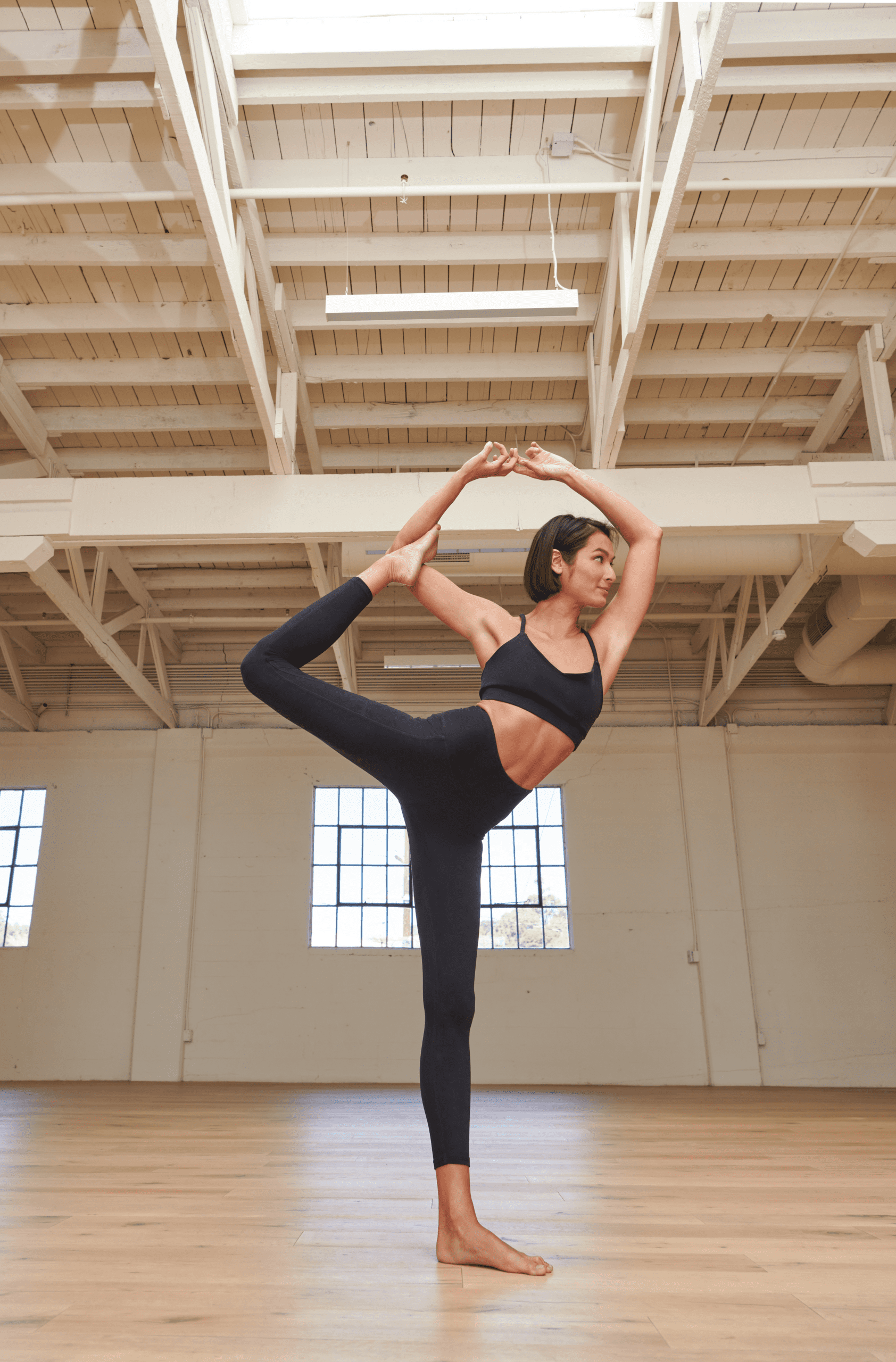 KF: I have a daily morning meditation practice that I do soon after waking, before my family wakes up. It is a special part of my day that helps me stay centered, aligned, and present for life, no matter
KF: I have a daily morning meditation practice that I do soon after waking, before my family wakes up. It is a special part of my day that helps me stay centered, aligned, and present for life, no matter
what my day ahead looks like. I then usually have some kind of a movement practice either a shorter yoga and movement practice that usually includes sun salutations, or a longer yoga practice if my day is more spacious. I am also really happy these days to be back in studios taking classes In person a few days a week. I like flowing practices the best. I would say that the teachers who I have been most touched by are Sianna Sherman (I took a lot of her online classes during the pandemic), Janet Stone, Kia Miller (I also love her online platform) and like to weave in breathwork and kriyas into my practice, and Hannah Muse who is local here in Santa Cruz and also has a great online platform.
WL: WVN is a certified B Corp, uses Fair Trade Certified factories, is GOTS certified, As consumers, what types of certifications would you like the average consumer to be more on the lookout for?
KF: Getting all of the certifications that we have and our suppliers have takes time and dedication and follow through to uphold. They are all signs that, as a company, we are committed to making things sustainably and using business as a force of good. I feel like for consumers, being aware of B Corporations is important, as it means that a business is prioritizing people and planet in everything 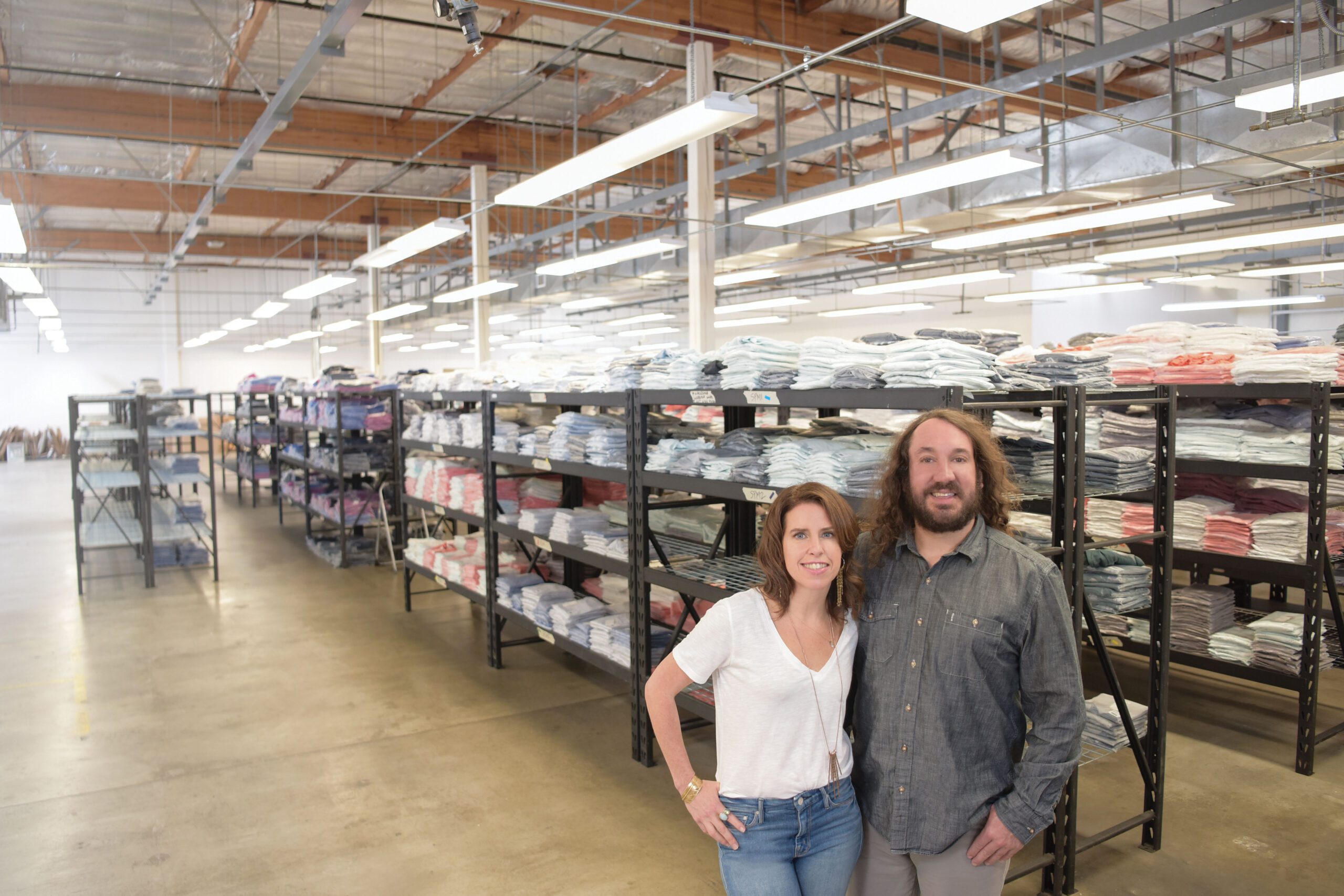 they do. I feel like for consumers who are buying products that are made overseas, then paying attention to certified Fair Trade is really important. Many people have no idea who made the things they buy, or how or where they are made. Fair Trade means that the people who make the things you buy are paid a fair living wage in a healthy work environment. Certifications such as these help point to things being made thoughtfully. It is a tricky time we are living in when green washing has become so commonplace with buzz words like “sustainable” and “natural” sprinkled into marketing, when it may be just that—marketing, without actual substance.
they do. I feel like for consumers who are buying products that are made overseas, then paying attention to certified Fair Trade is really important. Many people have no idea who made the things they buy, or how or where they are made. Fair Trade means that the people who make the things you buy are paid a fair living wage in a healthy work environment. Certifications such as these help point to things being made thoughtfully. It is a tricky time we are living in when green washing has become so commonplace with buzz words like “sustainable” and “natural” sprinkled into marketing, when it may be just that—marketing, without actual substance.
WL: As a brand, and/or personally, how do you balance the need to sell and scale with the desire to protect the planet and promote conscious consumerism?
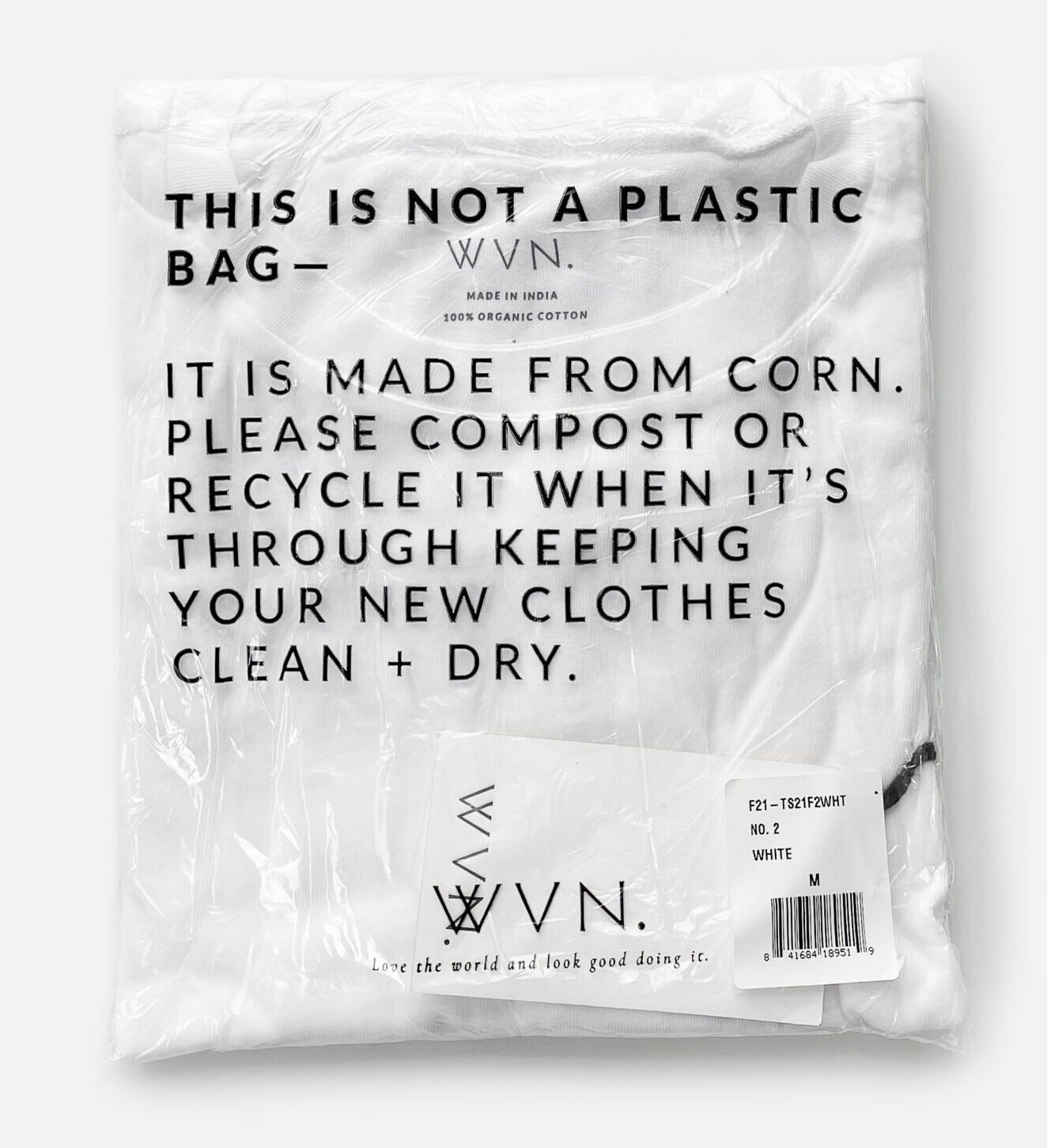 KF: Being in the fashion business where there are continuous cycles, it takes extra awareness that we do not “ pump” out too much “ stuff” on the planet, and that what we create actually enhances life versus sucking the planet. As a starting point we try and be really aware that we work with the most low impact materials and ingredients we can ranging from GMO-free organic cotton seeds, to low impact dyes, and compostable corn packaging. We try our best to reduce our footprint in every way. We also pay attention to the kinds of clothing we make, so that we make high quality clothing that will never go out of style—that will last. We want the pieces we make to enhance the wearers life, so that they become beloved wardrobe staples. But we also need to make decisions at times that puts conscious consumerism at the forefront. For example, we just decided not to make a new fabric for our essential T-shirts even though we want to improve it, because we know we still have inventory left in our current fabric.
KF: Being in the fashion business where there are continuous cycles, it takes extra awareness that we do not “ pump” out too much “ stuff” on the planet, and that what we create actually enhances life versus sucking the planet. As a starting point we try and be really aware that we work with the most low impact materials and ingredients we can ranging from GMO-free organic cotton seeds, to low impact dyes, and compostable corn packaging. We try our best to reduce our footprint in every way. We also pay attention to the kinds of clothing we make, so that we make high quality clothing that will never go out of style—that will last. We want the pieces we make to enhance the wearers life, so that they become beloved wardrobe staples. But we also need to make decisions at times that puts conscious consumerism at the forefront. For example, we just decided not to make a new fabric for our essential T-shirts even though we want to improve it, because we know we still have inventory left in our current fabric.
Instead of making more ‘stuff’, we want to make that sure we sell the things we’ve already made so that every T-shirt finds a home, before we make more. We are also trying to reduce how many different items we make per season, because let’s face it—too much clothing is being made every year and we do not want to be a part of the fashion industry problem.
WL: What sets you apart from other sustainable clothing brands, and how does this vision guide your business decisions as we look toward post-pandemic times?
KF: We take a lot of care in how we make our clothing and all aspects of our business. It feels like we are weaving a community and are a bridge between our customers, our products and fabrics, and our 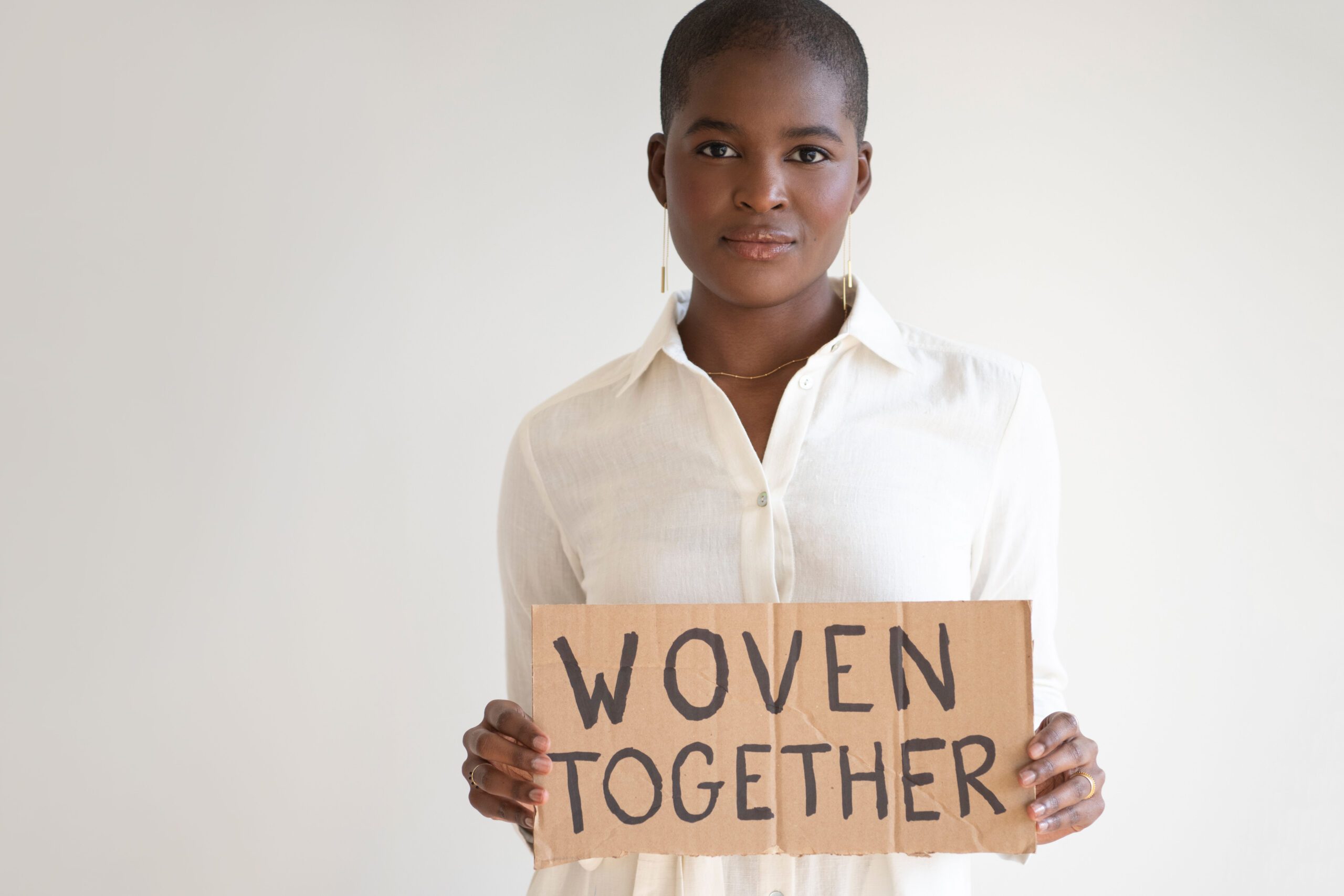 suppliers. We nurture the relationships we have with all of our makers and want our clothing to have a ripple effect on enhancing the lives of those who buy and wear our clothing and the lives of those who are paid fair living wages to make it. On the yoga front we are one of a small group of companies that makes organic cotton clothing designed for yoga and movement. Our movement collection is really soft and comfortable and breathes. And it is plastic free! In the last two years, we have started working with block print fabric that is a deep love of mine, with ancient roots as a textile tradition that goes back thousands of years. Some of our block print dresses take 12 hours just to print the fabric. I love being a part of a slow fashion movement.
suppliers. We nurture the relationships we have with all of our makers and want our clothing to have a ripple effect on enhancing the lives of those who buy and wear our clothing and the lives of those who are paid fair living wages to make it. On the yoga front we are one of a small group of companies that makes organic cotton clothing designed for yoga and movement. Our movement collection is really soft and comfortable and breathes. And it is plastic free! In the last two years, we have started working with block print fabric that is a deep love of mine, with ancient roots as a textile tradition that goes back thousands of years. Some of our block print dresses take 12 hours just to print the fabric. I love being a part of a slow fashion movement.
My vision for post-pandemic life is that humanity slows down its consumption and pace of life, and that we all start really looking out for one another and for our planet. I can see how much this has already started and I do really think this is a transformative time on the planet and I am hoping and trusting that we will all come out better than before, even if it is choppy seas with a lot of chaos to get us there.
—
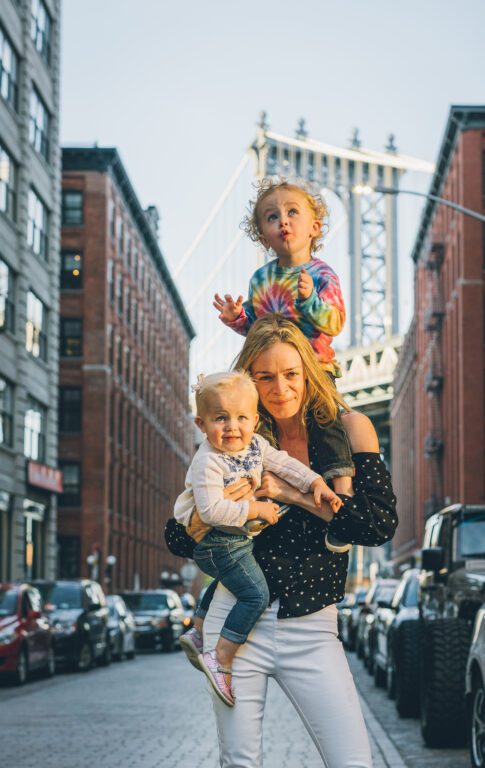 Karina Mackenzie is writer, producer, and wearer of many hats at Wanderlust. As Sr. Director of programming of Wanderlust events, she curates experiences for Wanderlust events as well as the Wanderlust TV platform. and also contributes to editorial content as a writer, content creator, and event experience design.
Karina Mackenzie is writer, producer, and wearer of many hats at Wanderlust. As Sr. Director of programming of Wanderlust events, she curates experiences for Wanderlust events as well as the Wanderlust TV platform. and also contributes to editorial content as a writer, content creator, and event experience design.
She served for 5+ years on the board of non-profit, Yoga Foster (now Wellemental), whose mission is to make mindfulness elementary in public schools across America, and volunteered on the Green Wellness committee in Brooklyn public schools.
She now lives in the woods of New England with her two kids and husband, learning (clumsily) how to lean into country life.
 There is a sense that emerges from years of experience that “we know what we are doing and how to get it done”, and that our company is in alignment with its dharma to make beautiful clothing that is sustainable and fair trade.
There is a sense that emerges from years of experience that “we know what we are doing and how to get it done”, and that our company is in alignment with its dharma to make beautiful clothing that is sustainable and fair trade.